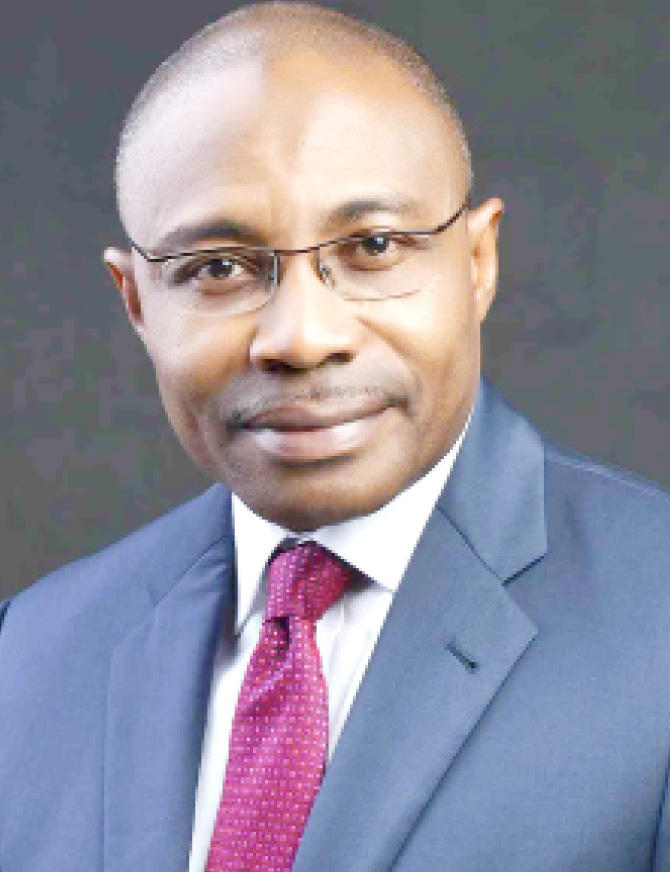In this interview, the Chief Executive Officer of Sigma Pensions, Mr Dave Uduanu, speaks on the recent hike in the Monetary Policy Rate (MPR) and its effect on pension funds, suggesting that it would improve returns; and other pertinent industry issues.
How has the recent decision by the Central Bank of Nigeria (CBN) to increase the Monetary Policy Rate (MPR) affected the markets in terms of investment?
The direct impact is that fixed-income yields have gone up and investors are moving from the equity market to the fixed-income markets. It is good in the sense that it is narrowing the spread between real returns and inflation. Real returns are still negative as the yield in the fixed-income market is now about 16 to 16.5 per cent while inflation is about 20 per cent. It is still a negative interest rate, but that gap has been narrowed.
However, it has impacted negatively on the equity market because equities do well when interest rates are low. Presently, investors are moving their monies from equities to fixed-income markets and corporates are finding it difficult to borrow because borrowing costs have gone up.
So, the impact is mixed, the banks are also feeling the impact because the Cash Reserve Ratio (CRR) rate has gone up significantly, and it means that a lot of the liquidity in the banking system is trapped. So overall, we have seen interest rates go up and it is generally bad for the corporates and SMEs.
How does this decision impact pensioners’ investments?
This decision is a good thing because up to 70 per cent of the portfolio is invested in fixed income. So the yields are going up; meaning it is positive for the pension funds. Generally, every time the interest rate goes up, it is positive for pension funds depending on the asset classes you are holding for money market instruments.
However, if you are holding mark-to-market bonds, that is negative because the prices will come down. But I think overall for the industry, it is positive because our returns are going up.
Can you speak on the private equities (PE) market in Nigeria?
Private equity is a bit nascent; it is a new industry and I would say yes, it has been around for 25 years, but mainstream, it has been around for 10 years. The private equity market is a space where companies raise money outside the listed market and investors, such as pension funds, invest through fund managers.
The regulation doesn’t allow us to invest directly in unlisted securities, so private equity is the only way to access unlisted securities, growing companies, infrastructure, and real estate.
It is an important market. However, it is very early and a lot of the investments that have been made haven’t reached their full lifecycle. A typical private equity fund takes about 10 years to make the investment and harvest the returns or return the money to investors.
It is a good thing because Nigeria is at the forefront of private equity in Africa and the pension funds are driving domestic capital into this asset class.
How would you assess the investments of PFAs through private equities so far?
It is too early to say, we have made about four commitments to unlisted securities: two private equity funds, and two infrastructure funds and we are also looking at two real estate funds. It is a dollar investment, so the returns we are getting are in dollars, which is good. But in terms of return track record, we haven’t seen a huge positive track record. But it is too early to say, and you know the returns are just coming in. So, give us another four years and we’ll be happy to share more experiences.
In terms of the regulations around the PFAs being able to invest in PE, would you say it is fair regulation in terms of how much and how you can invest?
It is very fair, there are no regulation problems. PFAs are allowed to invest in private equities and the investment decision is to be made by each fund manager – a pension fund manager.
The National Pension Commission (PENCOM) has done all it can. You can invest in domestic currency bonds or dollar funds subject to the availability of US dollars.
So, the regulation is clear, the key challenge is the availability of experienced fund managers and those fund managers being able to find transactional and interesting deals into which they can deploy money.
You mentioned investing in dollar-based funds which seems like a better option for your stakeholders. If you were able to access more dollar-based funds, would you invest more?
We would invest in dollar-based funds because the returns would be in dollars. The challenge we have is the availability of dollars. As you know, it is difficult to get dollars in Nigeria.
We are beginning to see a trickling of dollars as some of the investments we made in the early private equity funds have started to generate some returns and are in dollars and so, we were able to reinvest those dollars. But generally, the big decision or discussion now is how to allow pension funds to invest more in dollar instruments by getting the central bank to give an allocation to pension funds.
That is a macro decision that would have to be taken by the central bank and the government of the day. But dollar funds are good because they give some currency diversification and it is good for pension funds.
Are there ongoing talks on the table?
The talk is already on. We have made our position paper known and is currently being discussed at various government quarters. There are mixed feelings about it; some people may feel, why invest offshore when Nigeria needs the money. However, pension funds are portfolio managers; you can invest both onshore and offshore.
The important thing is to have a balanced portfolio and again for offshore, you start with a very small allocation of 5 to 10 per cent. The important thing is it protects the pension funds from currency devaluation which happens in emerging markets.
Still on PE, what are the sectors that are most attractive to PFAs?
The sectors that are attractive are consumer goods sectors, financial services, FinTech and, broadly speaking, infrastructure and real estate. Those are the attractive sectors.
I would encourage private equity fund managers to look inwards and look for companies that are very attractive, companies that have very experienced management teams, and companies that are able to deliver the dollar returns that we want.
Also, they should be able to deliver on a risk-adjusted basis and returns that are better than what we get in the listed space. That is what makes the case for private equity.
Lastly, on investment in Infrastructure, can you give us an update?
We have currently invested in two infrastructure funds and they are doing very well. Infrastructure funds are doing better than private equity funds and we would begin to see more interest in that area.
We would allocate more money to infrastructure because as we know, the country needs a lot of infrastructures and the pension funds are getting competitive returns from these infrastructure funds.

 Join Daily Trust WhatsApp Community For Quick Access To News and Happenings Around You.
Join Daily Trust WhatsApp Community For Quick Access To News and Happenings Around You.

